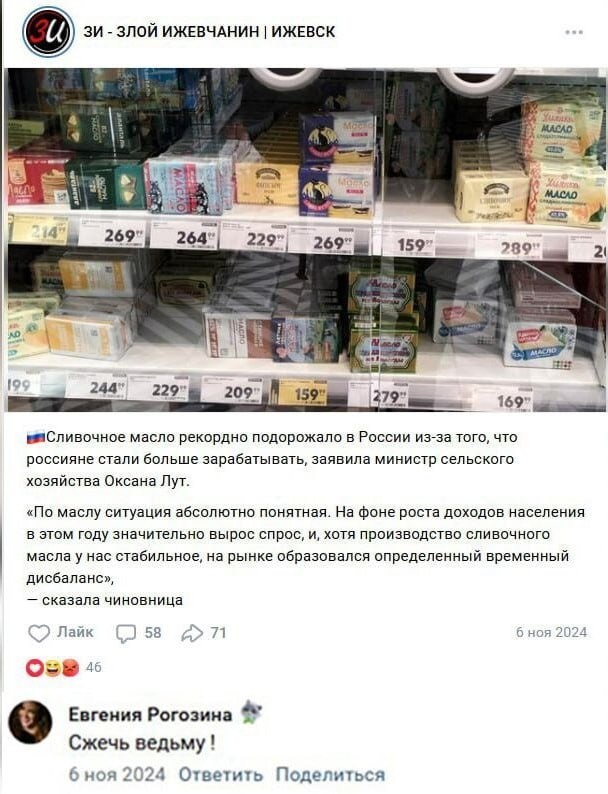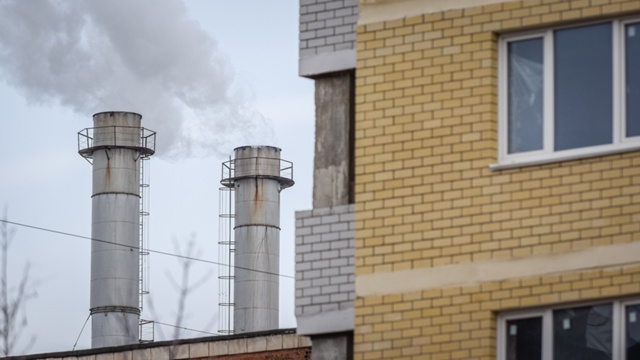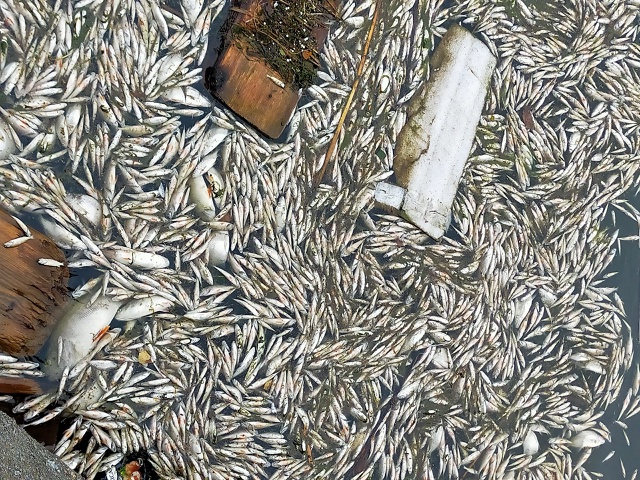Report about the Human Rights violations in Republic of Udmurtia
Human rights defender of Udmurtia Elena
August 2025
Violation of the right to justice
A case has been recorded in the Balezinsky district of Udmurtia that raises serious concerns from the point of view of compliance with the principles of the rule of law and the right to a fair trial. A 34-year-old local resident, accused of the premeditated murder of a woman and the subsequent destruction of evidence by dismembering her body, has avoided trial.
According to information of media: He strangled the woman with a robe belt and carried her body out onto the balcony. Two months later, he dismembered the body and threw almost all of the remains into trash bins. Some were found at a sorting facility in Glazov, and others at the defendant’s home. The man was detained and arrested. While under investigation, the defendant signed a contract with the Ministry of Defense, as the head of the military selection center informed the Balezino District Court. The criminal case regarding the woman’s murder and dismemberment has been suspended.
In fact, a person accused of a particularly serious crime against life was transferred to the disposal of the Russian Ministry of Defense without a court verdict. This practice poses a threat to the justice system as it allows for the avoidance of criminal responsibility for serious crimes through recruitment into the armed forces, which is contrary to international human rights standards and the Russian Federation’s obligations to ensure the right and access to justice.
The acquittal of a murder accused in exchange for being sent to war violates the right of the victims and their relatives to a fair trial (Article 14 of the ICCPR, Article 6 of the ECHR). This practice undermines confidence in justice and encourages impunity.
Repression for online comments: Violations of freedom of speech
Case 1
On August 12, 2025, a criminal case was initiated in the Zavyalovsky district of the Udmurt Republic against a 55-year-old local resident in connection with a comment he left on the social network “VKontakte” on the topic of increasing housing and communal services tariffs. The investigating authorities qualified his statement as a “public call to encroach on the life of a statesman” and incriminated him under Article 205.2 of the Criminal Code of the Russian Federation (“Public calls to commit terrorist activities, public justification of terrorism or propaganda of terrorism, committed using the media or the Internet”).
The Zavyalovsky district court chose a preventive measure in the form of house arrest with a ban on certain actions, and also obliged the accused to appear when summoned by the investigator and the court. This case demonstrates the use of anti-terrorism legislation to prosecute for speech on social media, which restricts the right to freedom of expression guaranteed by Article 19 of the International Covenant on Civil and Political Rights.
Case 2
The Yekaterinburg Military Court has begun a criminal case against a resident of Mozhga (Udmurtia) Evgenia Rogozina, 38 years old. She is charged with committing a crime under Article 205.2 of the Criminal Code of the Russian Federation (“public calls to commit terrorist activities”) in connection with a comment on the social network “VKontakte”. Under a publication with a statement by the Minister of Agriculture of the Russian Federation Oksana Lut, who explained the increase in butter prices by “increasing the level of well-being of Russians”, Rogozina left the comment “Burn the witch”. For this remark, which social media users and the defendant’s relatives themselves described as a “meme expression” in the context of an emotional reaction, the woman was detained. Initially, house arrest was chosen as a preventive measure, but she was later transferred to a pre-trial detention center. During the court hearing, the defendant explained that she used the expression as an emotional one, and not as a call to action. Witnesses were heard at the first hearing, and the court scheduled the next hearing for September 23.

This case demonstrates the criminalization of everyday expressions on social networks and the arbitrary interpretation of “terrorist calls,” which contradicts the principle of legal certainty and freedom of expression guaranteed by international human rights treaties.
Right of privacy and freedom of expression
On 25 August the head of the region, Alexander Brechalov, during a cabinet meeting, announced an order that from September 1, 2025, all civil servants in Udmurtia are required to switch to the so-called “national messenger” MAX. In his speech, Brechalov publicly rejected citizens’ concerns about the risks of total control through the new messenger. In particular, he stated: “If you have nothing to hide, what’s the problem?” and compared the situation to the use of WhatsApp, which is recognized as “extremist” in the Russian Federation and, from message of Brechalov, “is not protected from total control” also.
It was previously reported that the implementation of MAX in the region will primarily affect the education and housing and communal services sectors.
Thus, citizens’ rights to privacy of correspondence and freedom of expression are under threat, since the transition to a state-controlled messenger creates risks of total monitoring of communications. Such initiatives contradict international standards for the protection of privacy (Article 17 of the International Covenant on Civil and Political Rights).
Right to an environment that is safe for life and health violations
Complaints for chemical pollution of the air in Izhevsk
In August 2025, residents of Izhevsk again reported the spread of a pungent chemical odor in the city, which caused physical discomfort – dry throat and eye irritation. Complaints came mainly from residents of the northern and eastern districts of the city. In response to citizens’ appeals, Rospotrebnadzor specialists conducted air measurements on Timiryazev, 10 rok Zhovtnya, Voroshilova, Baryshnikova and Petrova streets. The official results of the inspection recorded the absence of exceedances of maximum permissible concentrations for a number of indicators (nitrogen and carbon oxides, sulfur dioxide, hydrochloric acid, formaldehyde, ammonia). At the same time, reports from residents indicate the regular nature of environmental problems in the city. Residents of the Leninsky district record the appearance of red dust on cars and balconies, which may indicate industrial emissions and the lack of proper environmental monitoring.

Thus, the situation is of concern from the point of view of respecting the right to an environment that is safe for life and health (Article 42 of the Constitution of the Russian Federation, Article 12 of the International Covenant on Economic, Social and Cultural Rights).
Votkinsk: mass death of fish in the city pond and the introduction of a regime of heightened readiness
On August 10, 2025, residents of Votkinsk reported a mass death of fish in the city pond. Photos of significant accumulations of dead fish on the embankment near the rescue station were published in social networks and local mass media. On the same day, representatives of the Ministry of Natural Resources of Udmurtia went to the scene and took water samples for laboratory analysis. As the agency specified, it will take about two weeks to conduct the investigation. Since August 11, the municipal authorities organized the collection and disposal of dead fish by the employees of VHES LLC. At the same time, the city administration held a meeting of the commission on emergency situations, at which a decision was made to introduce a state of heightened alertness in Votkinsk. The enterprise “Vodokanal” stated that the water entering the city networks corresponds to the established norms. At the same time, the enterprise undertook to conduct additional checks on parasitological indicators and the presence of petroleum products. The city authorities recommended residents to refrain from swimming and fishing in the pond, as well as not to use water from the reservoir for domestic needs.

The situation with the mass death of fish in the Votkinskoy pond causes serious concerns from the point of view of observing the right of citizens to a safe environment (Article 42 of the Constitution of the Russian Federation, Article 12 of the International Covenant on Economic, Social and Cultural Rights).
The official reaction was limited to the organization of disposal of the dead fish and the introduction of a high alert regime, however:
the reasons for the pollution of the reservoir have not been established and have not been brought to the public; residents are deprived of access to transparent information about the results of water analyses; there are risks to people’s health, especially if water is used for household purposes.
